
PEOPLE

Janette Bulkan
Assistant Professor Indigenous Forestry
Dr Bulkan has joined the Department of Forest Resources Management as an assistant professor of Indigenous forestry. She is a linguist and anthropologist by training, is a former diplomat, and has work experience in social forestry, participatory resource management, monitoring and evaluation, cultural diversity awareness and protection, and teaching. Janette founded the Amerindian Research Unit at the University of Guyana and was its coordinator from 1985 to 1999. From 2000 to 2003 she was a senior social scientist at the Iwokrama Centre for Rainforest Conservation and Development in Guyana. Janette is also interested in the areas of forest certification, control of illegal logging, anti-corruption, and REDD+ (reduced emissions from deforestation and forest degradation). In her new position with the Faculty of Forestry, she will be teaching an undergraduate community forestry course and plans to develop other courses in the areas of social and Indigenous forestry. Janette will collaborate with colleagues in mainstreaming Indigenous studies across the Faculty (Commitment #4 of the Faculty’s Strategic Plan) and will help to develop mutually beneficial research collaborations between the Faculty of Forestry and Indigenous communities in Canada and globally.
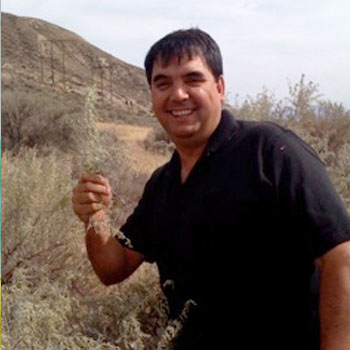
Keith Atkinson
FNCOA Co-Chair, CEO BC First Nations Forestry Council
Keith Atkinson, Registered Professional Forester is the Chief Executive Officer of the British Columbia (BC) First Nations Forestry Council which is a non-profit society working to support all 203 First Nations communities in BC with their in the forest sector. Over the past ten years First Nations involvement has grown to include over 13 million cubic meters of timber harvesting rights per year and significant developments in partnership with industry, capacity building in communities and policy changes including the development of a new form of forest tenure, the First Nations Woodland Licence. The current focus of the FNFC is to support business development in forestry; providing a forest resource office to support community issues; and to advocate for continued policy changes that recognize and support First Nations values and principles.
Keith grew up in coastal communities, is a member of the Snuneymuxw First Nation, and lives in North Vancouver. Keith graduated from UBC Faculty of Forestry in 1994 and developed his career as a forester through consulting forest management with an emphasis on First Nations participating in tenure opportunities. Keith has been involved with the UBC First Nations Council of Advisors since it began in 1994 and more recently has served as a co-chair of the First Nations Council of Advisors. He also sits on Faculty of Forestry’s Forestry Advisory Council.
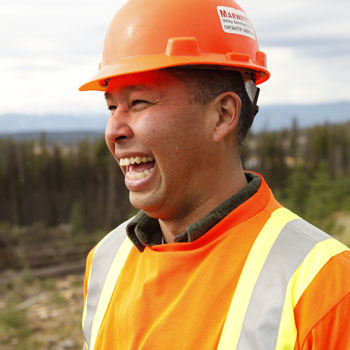
Lennard Joe
General Manager, Stuwix Resources Joint Venture
Lennard Joe, Registered Professional Forester is an alumnus of the UBC Faculty of Forestry Natural Resource Conservation program. Lennard has over 16 years of experience working in the forest sector with extensive experience working with First Nations in the interior of BC. Lennard is the General Manager of Stuwix Resources Joint Venture (Stuwix). Established in 2004, Stuwix is a market logging and forest management company, owned and operated by seven First Nations Bands in the Southern Interior of British Columbia.
For over a decade, Lennard managed his own forestry consulting business Grizzly Man Resource Management. In 2010, Grizzly Man won business of the year, two to 10 person enterprise from the BC Aboriginal Awards.
Lennard has been a member of the First Nations Council of Advisors since 2006.
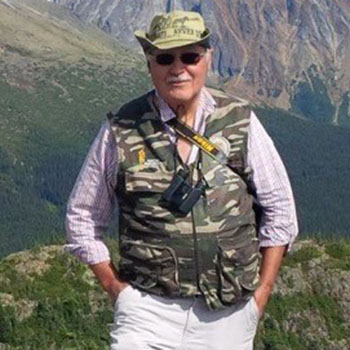
Larry Joseph
Social Forester and Director, Forest Stewardship Council International
Larry is a member of the Frog Clan. His grandparents and great grandparents were well-known hereditary chiefs and elders (Wet’suwet’en , Nadleh Whut’en, Saik’uz First Nation) on both his mother and father’s side of the family. Currently, Larry is a Social Forester. Recently (2011-2017), Larry was Director on the board of the global charity and Non-Governmental Organization called the Forest Stewardship Council (FSC) International. It’s voluntary, ethical certification system for forests, paper and wood products, operates in some 120 countries from its headquarters in Mexico and Germany. Larry and his board colleagues looked after its certification system which had a global market value of more than $350 billion dollars annually. Larry is proud to be one of the founders of the Permanent Indigenous Peoples’ Committee (PIPC) that operates in FSC. He has travelled to many countries and the United Nations (UN) too as a defender of indigenous rights, human rights, FSC forest certification, and forest conservation. Presently, Larry Joseph serves in an international FSC Working Group for Free, Prior, and Informed Consent (FPIC) for indigenous people. It will complete a FPIC guide book for use by the Forest Stewardship Council International (FSC). It will be used world-wide for the implementation of FPIC and the United Nations Declaration on the Rights of Indigenous Peoples (UNDRIP).

Maxime Lepine
Registered Professional Forester, General Manager of Homalco Forestry LP
Maxime Lépine, Registered Professional Forester is an alumnus of the UBC Faculty of Forestry, Forest Resource Management Program. He is currently employed with the Homalco First Nation since 2016 as General Manager of Homalco Forestry LP. This company is mainly a stump to dump contracting company harvesting approximately 170,000m3 annually in Bute Inlet, the core traditional territory of the Homalco First Nation.
Maxime provides forestry innovation to First Nations in his current capacity and previous working capacity with the First Nations Forestry Council. He has done this through market research and opening up the knowledge of what is happening on the landscape level by examining and relaying this knowledge to First Nations. This information has translated into the First Nation being able to gain strength when working with a proponent on Forestry Affairs.
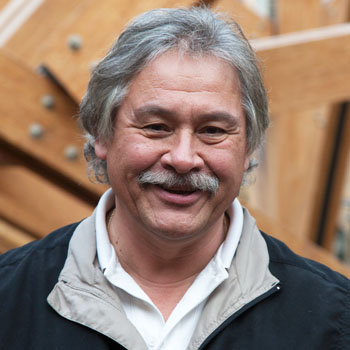
Garry Merkel
FNCOA Co-Chair, Forester, President, Forest Innovations
Over the last 30 years, Garry Merkel, Registered Professional Forester, has been involved in creating businesses, schools, various land management arrangements, public policy, foundations, working relationships and government. He has worked with various First Nations across Canada, the United States and internationally in various areas such as political advocacy, building organizations, negotiating treaties, developing governments, strategic planning, creating and managing administration, business development, education infrastructure and program development, managing businesses and programs, creating land management infrastructure, negotiating a wide spectrum of agreements, traditional ecological knowledge inventories and use and others.
Garry’s formal education includes a Forest Technologist Diploma, Selkirk College, Castlegar, B.C. (with honours) and a B. Sc. Forestry, U. of A., Edmonton, Alberta (with distinction). Garry hails from the Tahltan Nation in the Stikine River area of northwest British Columbia, and currently lives with the Ktunaxa Nation in Kimberley, British Columbia.
Garry helped form the First Nations Council of Advisors (FNCOA) in 1994 and currently serves as co-chair of FNCOA.
In 2013, Garry received the Queen’s Diamond Jubilee Medal for his significant contributions to the Columbia Basin Trust. In 2012, Garry was recognized as an honorary alumnus by alumni UBC.
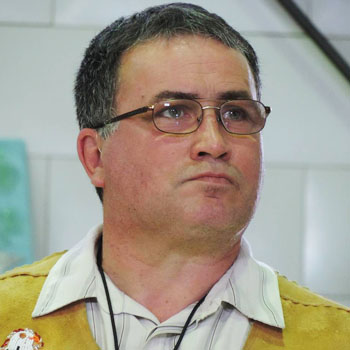
Jim Munroe
President, Maiyoo Keyoh Society
Jim Munroe is the President for the Maiyoo Keyoh Society. The society was established in 2003 to respond to the court decisions of Haida, Taku, and Delgamuukw decisions as a necessary tool for consultation and accommodation as a proper title and rights holder.
Jim Munroe approached UBC’s Faculty of Forestry in 2007 looking for help to develop high-level plans to protect local forest habitat, wildlife and cultural resources. Keyoh means territory that a group of people or extended family has ownership and land rights to. Dakelh (Carrier) law recognizes the heads of extended families as Keyohwhudachun, who are responsible for their territories.
With Jim Munroe heavily involved in liaison, UBC Faculty of Forestry students in the Forest Resource Management program have worked with a number of Keyohs in the Fort St. James region over the years. Groups of students have visited different Keyohs and developed plans for community forestry projects. The students gain a better understanding of local traditional indigenous systems of government, community values and how to apply knowledge to Indigenous rights and title. This prepares them for their future careers as foresters and working with Indigenous communities. It is an example of a mutually supportive and productive relationship between the various Keyohs, faculty and FRST 424 students.
Jim has been a guest speaker at the Indigenous Earths Praxis, the FORREX Forest Carbon Extension Seminars, the UBC CONS 370 and the National Geographers Conference of Australia.
Jim is from Sumas First Nation of Abbotsford and married Petra from the Maiyoo Keyoh, together they have 6 children. Their extended family are the customary and hereditary stewards of the Maiyoo Keyoh, a territory in central British Columbia. Jim is the spokesman for Sally Sam, hereditary Chief or Keyohwhudachun of the Maiyoo Keyoh.
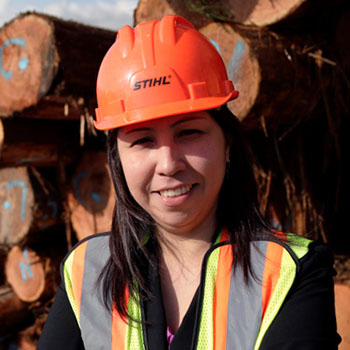
Angeline Nyce
Lawyer and Forester, A. Nyce Law Corporation
Angeline is a lawyer practicing in the areas of Corporate/Commercial/M&A Law, Natural Resources Law (Energy, Forestry, Mining and Oil and Gas) and Indigenous Law and First Nations Legal Issues with a focus on sustainable resource development, integrated resource management and land use issues. She is also a Registered Professional Forester, certified to practice forestry in British Columbia. Her clients include corporations, not-for-profits, governments, investors and contractors.
Angeline provides strategic and legal advice on commercial, regulatory and policy issues related to natural resource development and assets management. She regularly advises clients on leases, licences, contracts, socio-economic benefits, sustainable management and project development agreements, business partnerships and human resources.
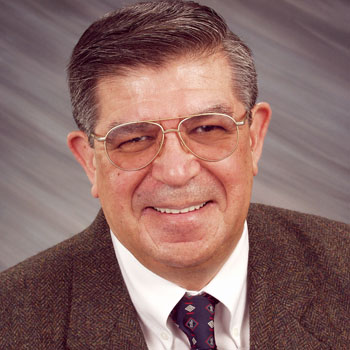
Gordon Prest
ABCFP Honorary Member
Gordon dedicated a distinguished career spanning 50 years to forestry operations and Indigenous forestry education. Gordon’s career began with the British Columbia Ministry of Forests in 1963 as a timber cruiser, quickly advanced to positions of forest ranger and forest operations superintendent. In 1988, upon leaving the Ministry of Forests, Gordon became involved with Indigenous education as a forestry instructor at the Nicola Valley Institute of Technology. Gordon is a previous senior staff member of the Faculty of Forestry and was the faculty’s founding First Nations Coordinator in 1994. Gordon was responsible for leading pivotal work in the faculty’s first “Forestry First Nations Strategy”.
In 2009, for his tireless work in promoting Indigenous forestry and forestry education Gordon was honoured with the National Aboriginal Achievement Award for environment and conservation and in 2010, the Canadian Institute of Forestry Award for unique and outstanding achievement in forestry in Canada. In 2011, Gordon was awarded an honorary membership to the Association of BC Forest Professionals.
Gordon served for many years as co-chair of the Faculty of Forestry’s First Nations Council of Advisors, Indigenous advisor to the Association of BC Forestry Professionals and a planning advisory committee member for the Institute of Coastal Research for Vancouver Island University. He currently is a member of the UBC President’s Advisory Committee on Indigenous Affairs.
Gordon continues to contribute as the elder for the First Nations Council of Advisors. Gordon Prest is from the Sto:lo First Nation in Chilliwack BC and currently resides in Merritt, BC.
Gordon’s education training includes the BC Forest Service Ranger Training School; Provincial Instructor Diploma from Vancouver Community College; Native Adult Instructor Diploma from Okanagan Community College and National Instructor Diploma from St. Francis Xavier University, Antigonish, Nova Scotia.
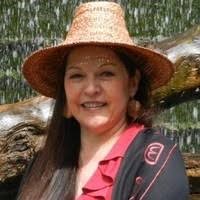
Dr. Teresa Ryan
Research Fellow at UBC Forestry
Dr. Teresa Ryan Sm’hayetsk Teresa Ryan, PhD, is a Research Fellow at UBC Forestry. She has pursued her academic and professional careers while maintaining the practices, principles and values of her Tsm’syen (Tsimshian) culture. Her research interests are aligned with Ancestral Knowledge systems and restoring Indigenous management of natural resources. Her PhD dissertation demonstrates the collateral loss of Indigenous stewardship over heterogeneous mosaic landscapes and the self-imposed opportunity costs created by colonial states. For more information about Dr. Ryan’s work, please see her TEDxBerekely talk: https://www.youtube.com/watch?v=apV0M55uF3Y

Sally Sellars
Lands Coordinator, Xatsull First Nation Natural Resources Department
Sally graduated from the UBC Faculty of Forestry – Natural Resources Management in 2006 and received her Registered Professional Forester in 2010. Prior to that Sally graduated from Nicola Valley Institute of Technology in 1997 with an Environmental Resource Technology Diploma. Sally is passionate about continuously building forest resource opportunities. Sally currently works as the Natural Resources Referral Worker for the Tsilhqot’in National Government to assist the community with resource development challenges. Prior to that, she worked as a Natural Resources Manager for the Soda Creek Indian Band where she is a member and as a First Nation Relations Officer for the Ministry of Forests, Lands, and Natural Resources. Sally is also on the Board of Directors for Thompson Rivers University –Applied Sustainable Ranching in Williams Lake since 2014.
Sellars has been a member of the UBC First Nations Council of Advisors since 2006.
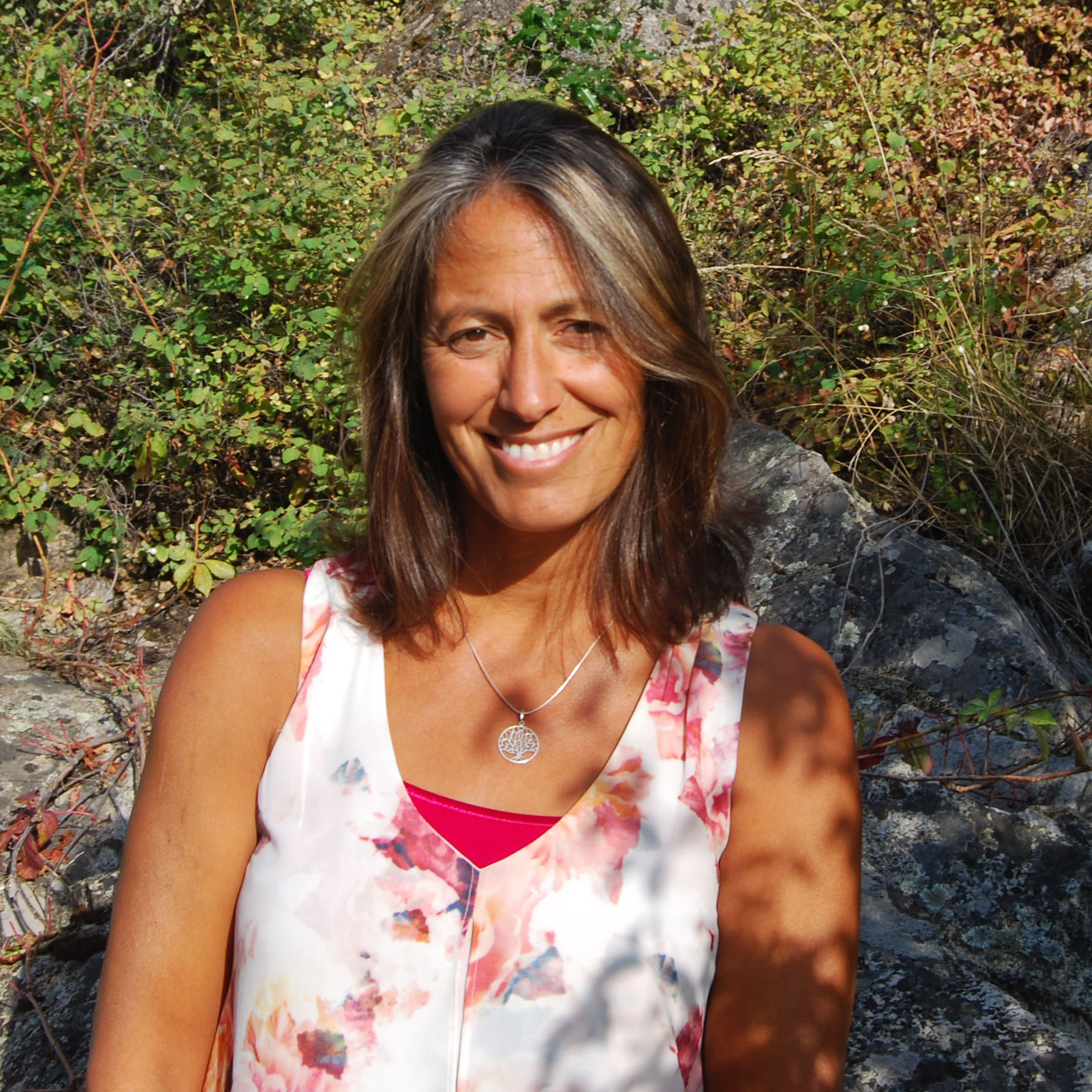
Ellen Simmons
Instructor, NVIT Environmental Resources Technology program
Ellen Simmons, originally from Saskatchewan (Swampy Cree), is a biology/ecology professor in Penticton, BC who works to promote Indigenous knowledge in relation to sustainable forest management and educate others about cultural traditions amongst Indigenous and non-Indigenous communities. She is also working with the Penticton Indian Band Adult Education Centre as a science and math teacher. She brings forth over fifteen years of experience within the environmental/conservation sector offering a unique skill set that communicates the necessity of including Traditional Ecological Knowledge (TEK) alongside western scientific approaches in Natural Resource practises. She holds an MSc. in Environmental Sciences (Royal Roads University) and a BSc. in Forestry (UBC Vancouver). Additionally, she represents the En’owkin Center (a post secondary Indigenous institution) as a Board Director for the Okanagan Similkameen Conservation Alliance.
Alongside, she also works to protect the endangered and rare black cottonwood lowland forests.
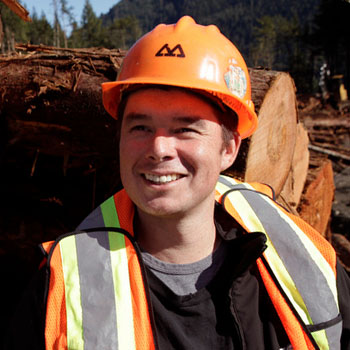
Matt Wealick
Forester and COO, Ts’elxwéyeqw Tribe Management Limited
I am a First Nations Registered Professional Forester (RPF). I grew up in Sayward BC, a small coastal logging community on north Vancouver Island. I have a Bachelor of Science in Forestry from the University of British Columbia, specializing in forest resource management. In 2006, I acquired a Master of Science in Environment and Management from Royal Roads University. I am a Sto:lo person and a member of the Tzeachten First Nation that originate from the Chilliwack Valley since time immemorial. In 2005, after gaining 17 years of experience working in the Interior and on the Coast in a multitude of roles, I have returned to my father’s home town of Chilliwack, BC to manage the Ts’elxwéyeqw Tribe’s forestry business Ts’elxwéyeqw Forestry Limited Partnership.
I was provided the opportunity to build a forest company from the ground up. With day-to-day business I work in every aspect of forestry, from government negotiations, planning, harvesting operations, silviculture, public relations, and finance. As well I work in other areas of forestry that are not within a normal RPF’s scope of practice, such as Indigenous rights and title, traditional and cultural use, and capacity building.
In 2012, the Ts’elxwéyeqw Tribe’s reorganized its corporate structure, to create one management company to manage multiple companies and business types. The types of business that the Tribe is involved with are title and rights, economic development, forest management, run-of-the-river, recreation, property management, and community engagement. In 2012 I was asked to be the Chief Operations Officer for Ts’elxwéyeqw Tribe Management Limited, the company that manages all the Ts’elxwéyeqw Tribe’s businesses. The company structures have grown from one to 14 in less than a decade.
First Nations values and their relation to the natural resources have become a topic at the forefront of discussion across the province. This has provided Ts’elxwéyeqw Tribe, through myself, to have voice at provincial committees that help guide provincial natural resource policy. This has provided myself the oppurtunity to work with and learn from many talented people from across the province. I hope that my operational experience and connections to the First Nations communities have helped those that I have worked with acquire a better understanding of First Nation’s issues thus allowing them to create stronger and more efficient working relationship with First Nation communities in their area.